Convicted of Trafficking Women in Nepal, Politician Claims Mistaken Identity. Remarkably, Supreme Court Clears Him of Charges.
Ghyangfedi, Nepal-On a cloudy day in October 2018, Nirmala Tamang, 24, was working in a field, gathering food for her family’s cattle. She cut the green leaves with her sickle, expertly bundling them together. In the background, she heard the gushing of a nearby waterfall and flow of the river through her village. Birds chirped from the trees.
Though tucked away in this bucolic setting northwest of Kathmandu, Nirmala (not her real name) lives in fear. A decade ago, Nirmala was sold by her first husband to a trafficker, and forced into a life of prostitution in neighboring India. The man convicted of trafficking Nirmala and charged with trafficking two other Nepalese women is a powerful local politician, Sun Bahadur Tamang. Activists say he may have trafficked more than 200 women in Nuwakot and other parts of Nepal.
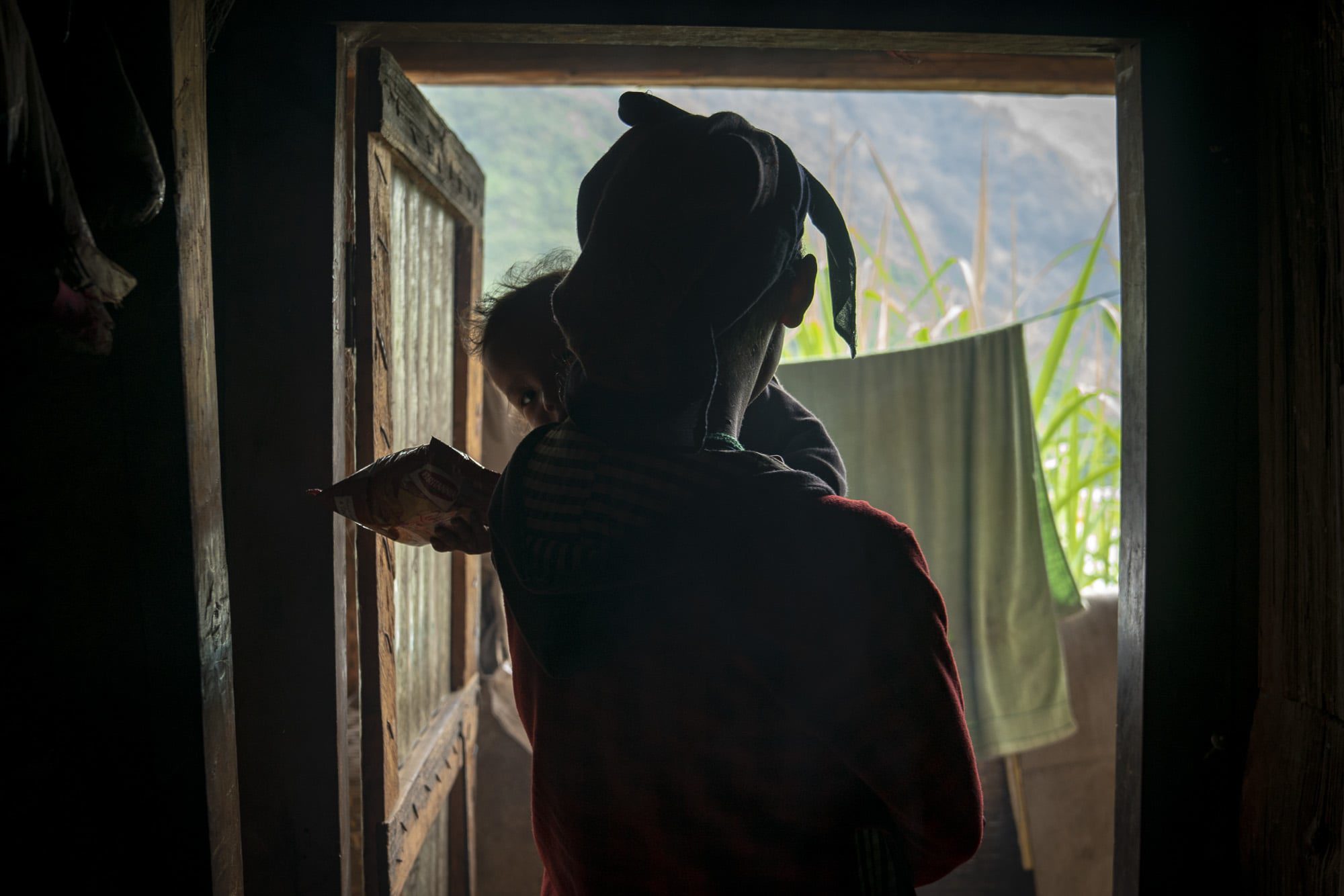
Nevertheless, the Supreme Court of Nepal cleared him of all charges and ordered his release, on the grounds that his accusers must have mistaken his identity.
In recent years, Nepal has become a major source of human trafficking, as poverty and repeated earthquakes have crippled an already fragile economy. But more dangerous than earthquakes is an absence of accountability for the powerful figures behind trafficking networks. Human traffickers enjoy impunity thanks to strong ties to politicians, police bribery and their skill at exploiting loopholes in the system, according to anti-slavery campaigners. Despite the rise of trafficking, arrests are rare, and largely limited to low-level operatives. Those at the top of the chain typically escape prosecution.
“Traffickers’ connections with political leaders have increased impunity, they are getting powerful and confident that they could do anything,” Dilip Koirala, an attorney at Shakti Samuha, an anti-trafficking organization.
“Traffickers’ connections with political leaders have increased impunity, they are getting powerful and confident that they could do anything,” Dilip Koirala, an attorney at Shakti Samuha, an anti-trafficking organization.
Tamang rose to power after he won a local election in 2017. He has used his political network to silence victims and to free himself by “finding loopholes in the system,” according to one police official. Tamang denies any wrongdoing.
“I am sad,” Nirmala said, adding that she fears for her life. “I am scared.”
“What I want is justice.”
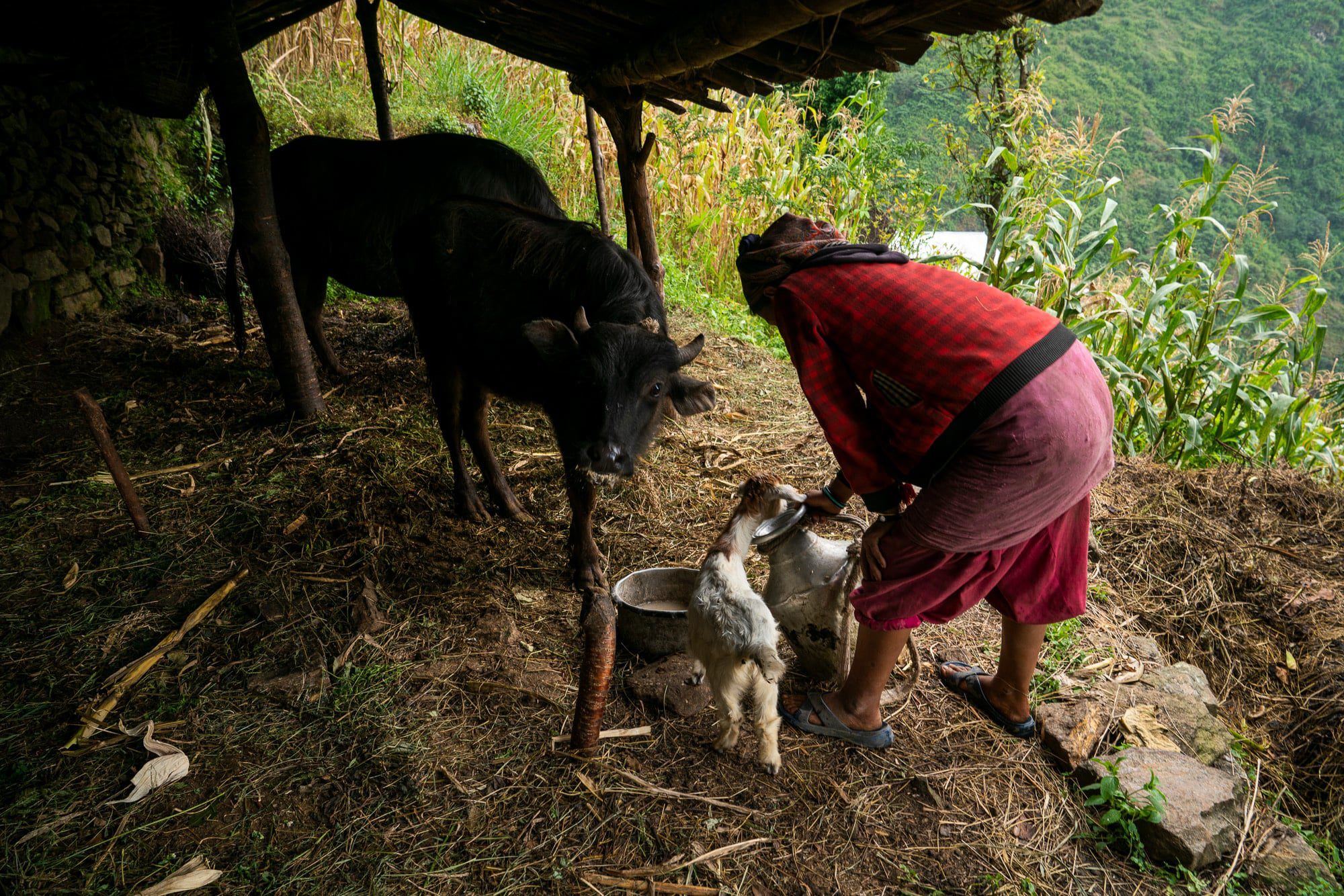
Sold by her “own husband”
Nirmala was the youngest child in her family, and was never sent to school. Most of the time, she did her parents’ bidding, mainly domestic chores. The village and nearby forest were her playground, the cattle were her friends.
Nirmala was forcibly married when she was 12 years old. “We have this strange system of marriage in our community,” Nirmala said.
“If a boy likes a girl, he could forcefully take a girl and then the girl is considered to be his wife,” Nirmala said. “I was forced into marriage when I was just 12 years old.”
“If a boy likes a girl, he could forcefully take a girl and then the girl is considered to be his wife,” Nirmala said. “I was forced into marriage when I was just 12 years old.”
Months later, her “husband” Tikaram Tamang told Nirmala that he was sending her away to work. In February 2008, Nirmala was trafficked from home to agents who, she said, worked for Sun Bahadur Tamang, who was related to her husband. The traffickers promised her a good job and a better future. They took Nirmala to Kathmandu and then Bhandup in Bombay, now Mumbai. She was expecting decent work.
“I don’t know for how much I was sold,” Nirmala said, holding her young son.
Her captors forced Nirmala into the sex trade in Bombay. They later sent Nirmala to a brothel in Delhi, which Nirmala said is run by a woman whom police identified as Sun Bahadur Tamang’s third wife, Radha Tamang.
“It was such bad work that I don’t even want to recall it again,” Nirmala said. “I was forced to sleep with many men.”
She saw two more girls from her village and around 100 other Nepali girls being forced into sex work in Delhi. She met her husband twice in the brothel, where he came to collect the money that she had earned.
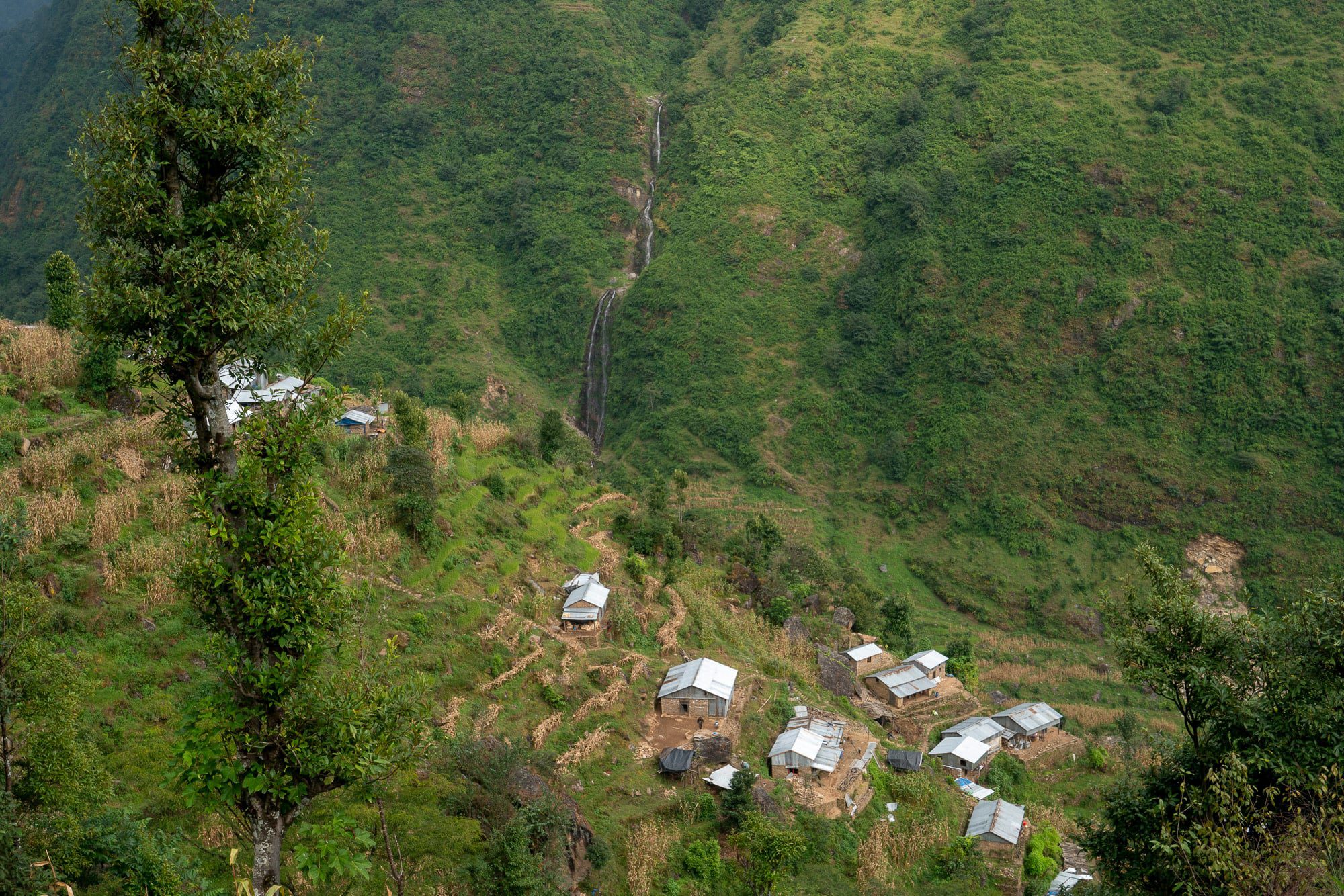
“I pleaded with him to rescue me, but he ignored me,” Nirmala said.
Police records show that Tikaram went to the brothel after six months and was paid Rs 5,000 by the owner, Radha Tamang.
He returned a second time for more money six months later, but was not paid, and instead returned home empty handed.
Tikaram Tamang, who is currently in Nuwakot prison, told J4T that he fell in love with Nirmala. He denied selling Nirmala, least of all to work in a brothel. “We have appealed our case in the high court,” he said, adding, “I am innocent.”
However, in a September 2015 police statement of Tikaram obtained by J4T, he confessed to selling Nirmala and taking her as his wife by force.
NGO workers rescued Nirmala in July 2013, after she had worked in the brothel for 64 months. One of the rescuers was the man to whom she is now married. They have two children.
After returning to Nepal and staying at a shelter run by an NGO, Nirmala filed her case against Sun Bahadur Tamang, who, she said, had lured her with the promise of work and forced her into sexual slavery.
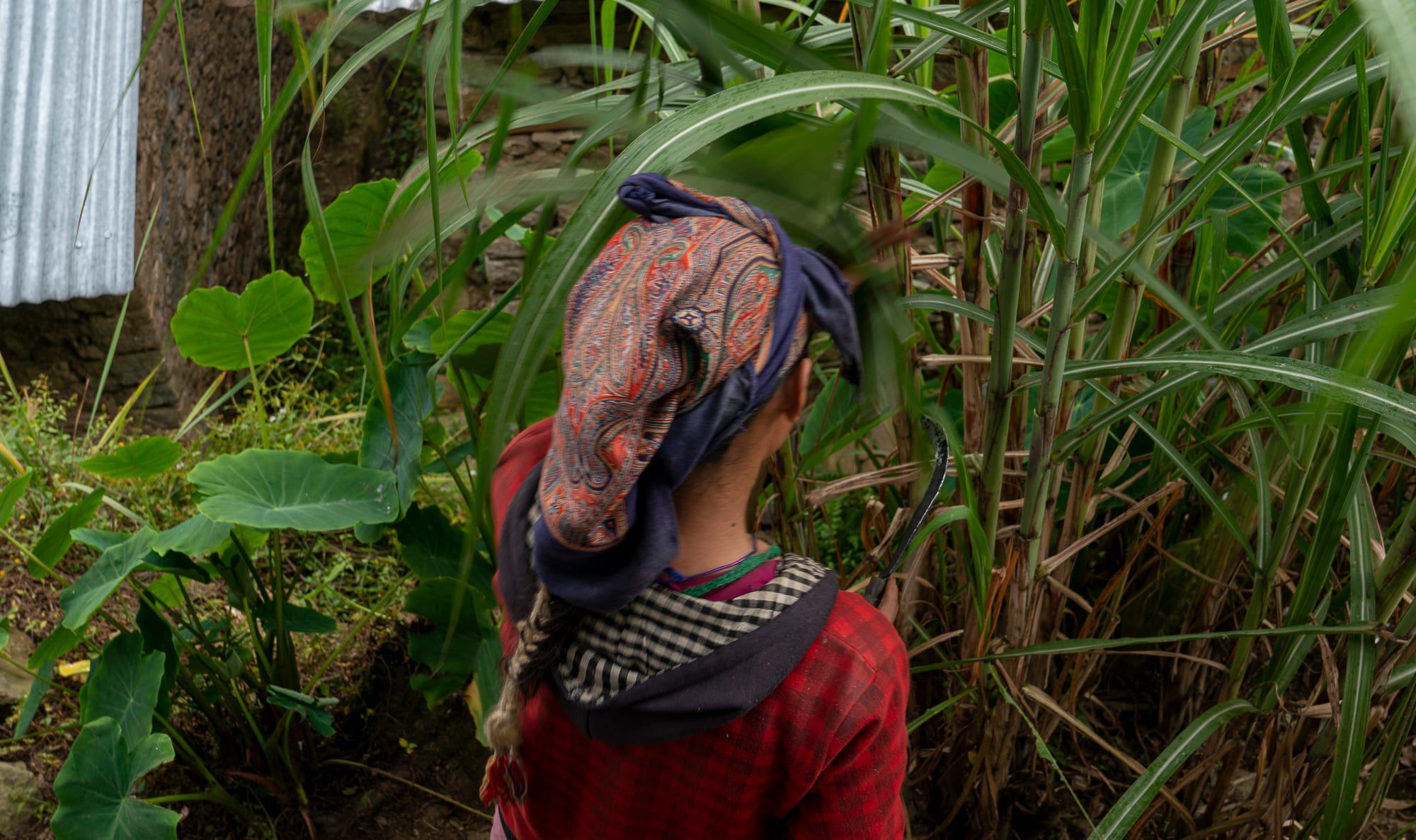
The powerful politician
In Nuwakot, Sun Bahadur’s alleged involvement in sex trafficking is treated as an open secret. “Our elders, teachers and those working in the social sector said that Sun Bahadur used to sell girls. They used to say that he operated a brothel and he has multiple wives who are operating brothels in India,” Ashmita Thapa, an activist from Nuwakot said.
Unchecked, Sun Bahadur allegedly sent scores of girls from Nuwakot to brothels in India, according to a police official involved in the investigation. The investigator said that Sun Bahadur was so close to the region’s power brokers and politicians and that he enjoyed protection from police and government interference. Thapa said that the police and administrative officers used to visit Tamang ’s village and stay at his home, as there were no other hotels in the area.
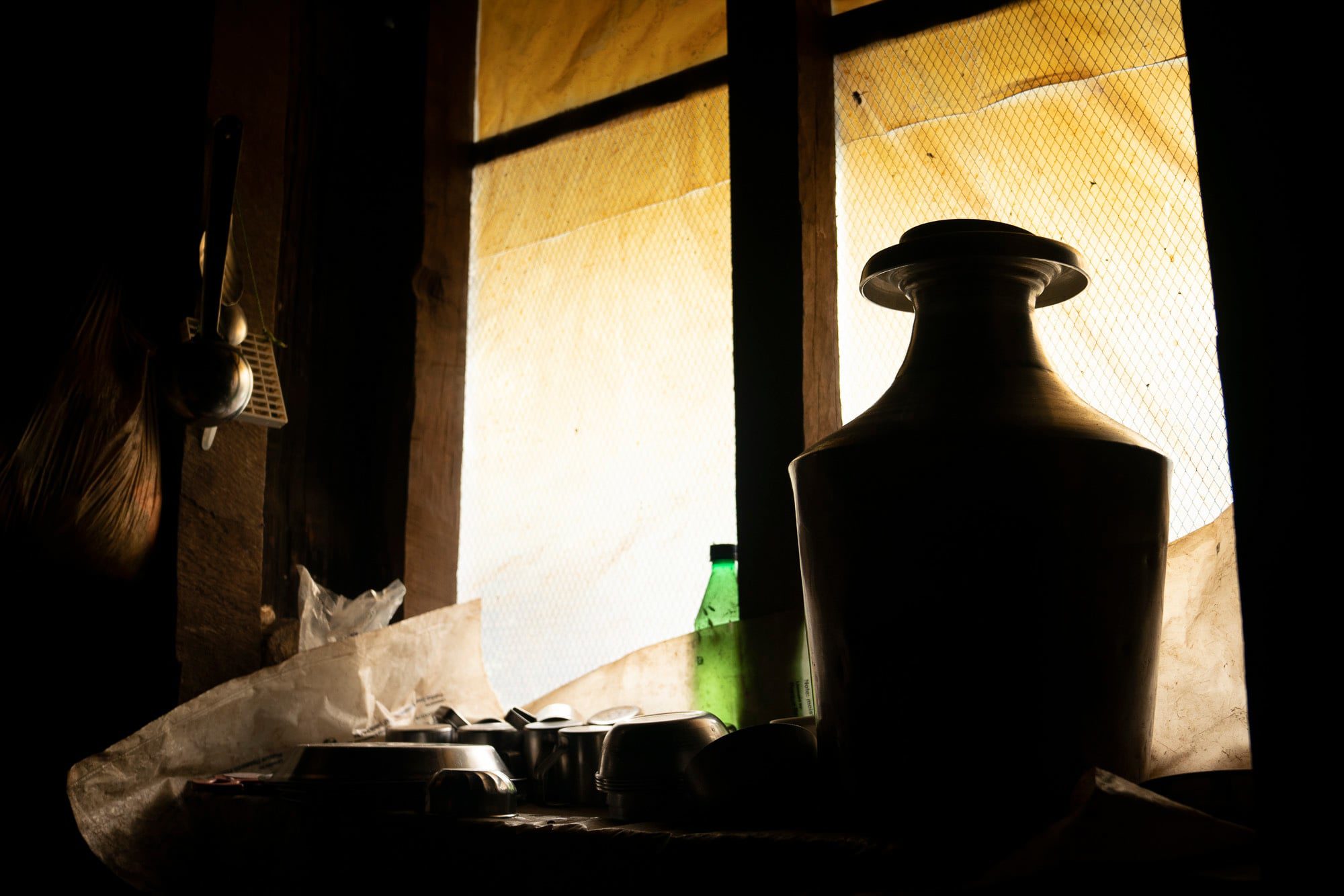
Thanks to his powerful political allies, Sun Bahadur could operate freely, activists said, while victims remained silent, fearing retribution against themselves or their families.
“They don’t want to come forward because they don’t feel secure,” said Sunita Danuwar, co-founder and Executive Director of Shakti Samuha. “Ours is a society that doesn’t support these girls.”
“Many are still in the brothels in India,” she added. After so many years of forcible labor in the sex trade, “they don’t want to come back, because they feel there is no life for them outside.”
They fear, too, the social stigma they would face for having been trafficked. Of those victims who made it home somehow, most never filed any written complaint.
In one bizarre episode, Sun Bahadur Tamang reportedly made five copies of his citizenship documents, a step activists believe may have played a role in his eventual release on grounds of mistaken identity.
None of the trafficking charges have blocked his political ascent. In the local election held in May 2017, Sun Bahadur Tamang was elected as a Ward Chairman of Dupcheswor Rural Municipality-1, by securing a total of 901 votes. He was elected despite having been convicted of human trafficking by the district court.
Yadhunath Khanal, Sun Bahadur’s lawyer, denied his client had done anything wrong. “All the charges are fake, we have a strong case,” Khanal, a senior lawyer said, “It’s a political propaganda. People aren’t happy that he won the election, that’s why his opponents are against him.”
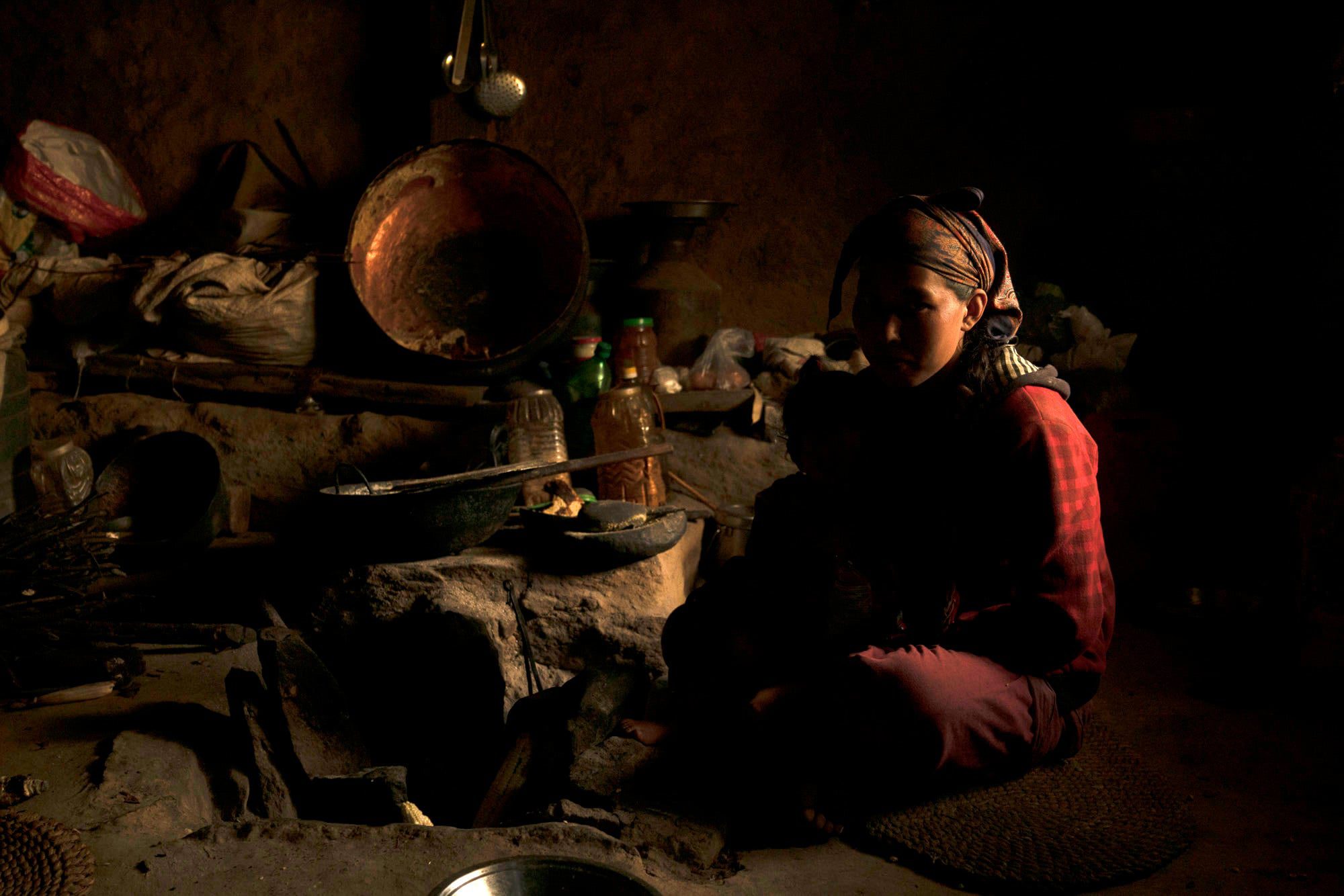
Watching his campaign, Nirmala lost any illusions she may had about democracy and justice. The man convicted of trafficking her, she said, used money and power to win the election.
Activists agree. “He is the right hand of the politicians from Nepali Congress,” said Thapa, the activist.
Thapa added that Sun Bahadur Tamang’s seeming invincibility was one of the major reasons many feared to speak against him. “This is because they don’t feel safe; another thing is they have the family relationship with the trafficker. They are afraid of future consequences,” Thapa said.
His political party, the Nepali Congress, says it has been watching the case and supporting the legal process. The party has taken no steps to punish the local politician.
His political party, the Nepali Congress, says it has been watching the case and supporting the legal process. The party has taken no steps to punish the local politician.
Bishwo Prakash Sharma, the party spokesman, said, “We are currently supporting the investigation and legal procedure regarding the case.”
Sharma said that throughout Nepal’s transition to democracy over the last twenty years, some figures have risen despite allegations of trafficking or corruption.
“People like him (Sun Bahadur Tamang) get some support or space from Nepali Congress or other parties because of the election politics for local support, or money for votes and this is the bad side of election.”
“This is not related to one party,” he said. “This tendency is seen on other political parties, similar people are given safe spaces. There should be political transformation and change in political psychology, media and civil society should create more pressure.”
Conviction, and Release
The Nuwakot District Court convicted Sun Bahadur in two separate cases, sentencing him to 37 years in one case, and to six years in a second case.
Nevertheless, he remained at large. It was only after when Nepal Police’s Central Investigation Bureau took charge of the case that Sun Bahadur was arrested in December 2017.
Seeing that he had been convicted, other victims stepped cautiously forward, filing complaints about the politician with police. As they took up these new investigations, police said, they received phone calls from the political leaders affiliated with Sun Bahadur, directing them to tread carefully.
Some security officials shrugged off the implications. “It’s normal to get a call from politicians,” said one.
Sun Bahadur’s lawyers went to the Supreme Court, arguing that the politician was a victim of mistaken identity. The Supreme Court quashed the district court’s order and ordered him freed. Justices Om Prakash Mishra, who is now the chief justice, and Purushottam Bhandari ruled that there was insufficient evidence that the person charged in the case is Sun Bahadur himself.
Activists view the ruling with suspicion, and say it is emblematic.
“There was political influence in the case. That’s why the trafficker was freed,” said Sunita Danuwar, co-founder and Executive Director of Shakti Samuha, a civic organization run by victims of human trafficking. “We want the Supreme Court to be independent, politically free and to give justice.”
The ties between courts and politicians run deep in Nepal, however, as parties play a strong role in naming judges.
Judges are selected based on party recommendations and some are party cadres or former lawmakers nominated to the bench by their parties. Nepal’s Judicial Council, which appoints the judges, has five members. Three on the selection team are politically active members: the Justice Minister, a legal expert recommended by the Prime Minister and a representative of the Nepal Bar Association.
“There is high politicization and party politics in the Supreme Court. Party cadres are selected as judges in the court at 3 a.m. How can we expect independence and impartiality from our court system?” Narayan Prasad Pantee, joint registrar from the Supreme Court of Nepal, said.
Former Chief Justice Sushila Karki, in her autobiography, Nyaya, which means justice, writes of her own experience confronting pressure from the ruling party in the selection of judges. Political leaders, she wrote, “came to my residence regarding the appointment of judges. I was called by different political leaders, recommending their choices as judges. Political leaders even gave me a list of names who should be appointed. I didn’t select those who were listed, but this shows what the current situation is.”
A review by J4T of the police case file showed that trafficking victims had positively identified Sun Bahadur, who is well known in his district through his political involvement.
Narayan Prasad Pantee, though, said he cannot comment on a specific case related to Sun Bahadur, as the judges made the verdict.
Activists and police who were investigating the case were shocked that the courts accepted the argument that the politician was prosecuted in error. A senior police officer in Nepal, who requested anonymity to discuss the case, described the Supreme Court’s ruling as a textbook example of impunity.
“There are immense loopholes and places for manipulation in our system,” said Assistant Inspector General Pushkar Karki, who headed many human trafficking investigations. “Perpetrators are expert, and victims are on the weaker side of the evidence.”
Karki said that the country lacks a central computerized identification system and traffickers can easily alter dates and addresses, possibly to create false alibis. In this connection, the multiple copies of his identification documents that Sun Bahadur secured ahead of his trial heightened suspicion among advocates and police.
Thapa said that government lawyers are regularly outgunned by private attorneys. “The role of the police is also huge in such cases,” she said. “It depends on the nature of the complaint, the victim, and the witness.”
Nuwakot: A Trafficking Hub
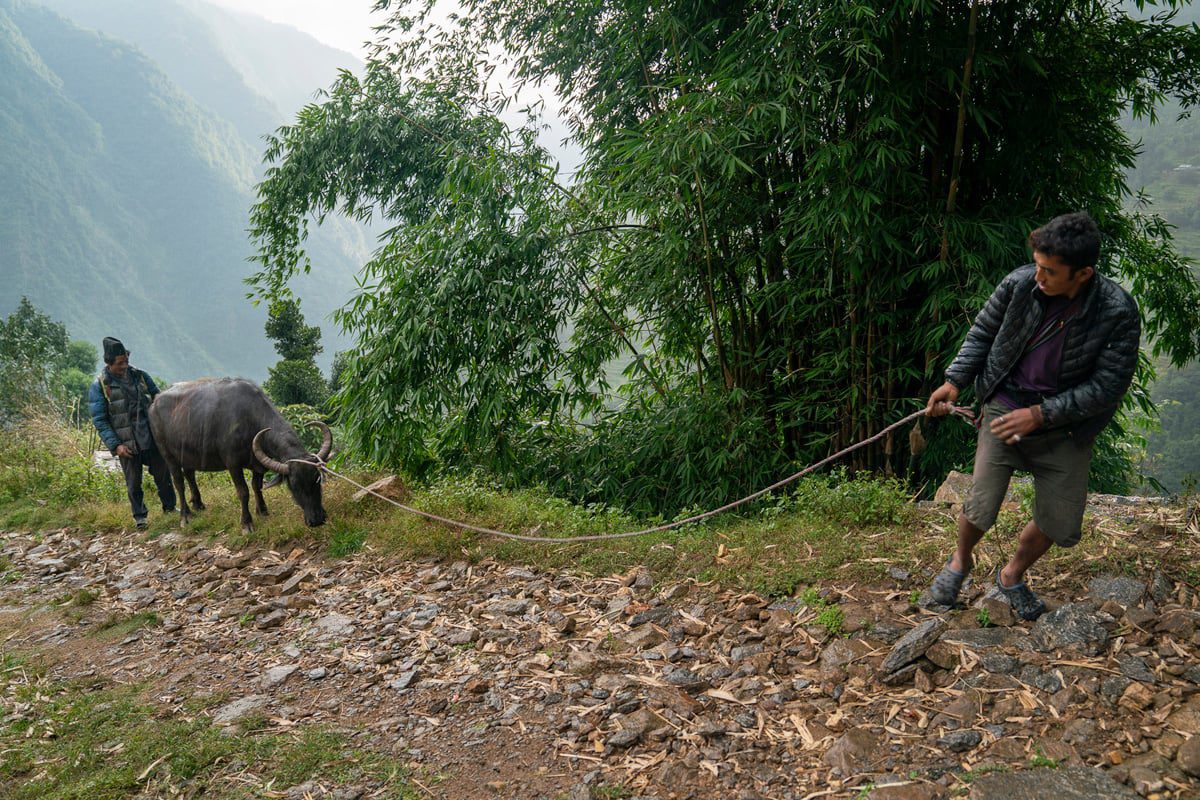
Villagers in Ghyanfedi trying to tame water buffalo and transport it to their house. Photo: Rajneesh Bhandari/ Journalists For Transparency
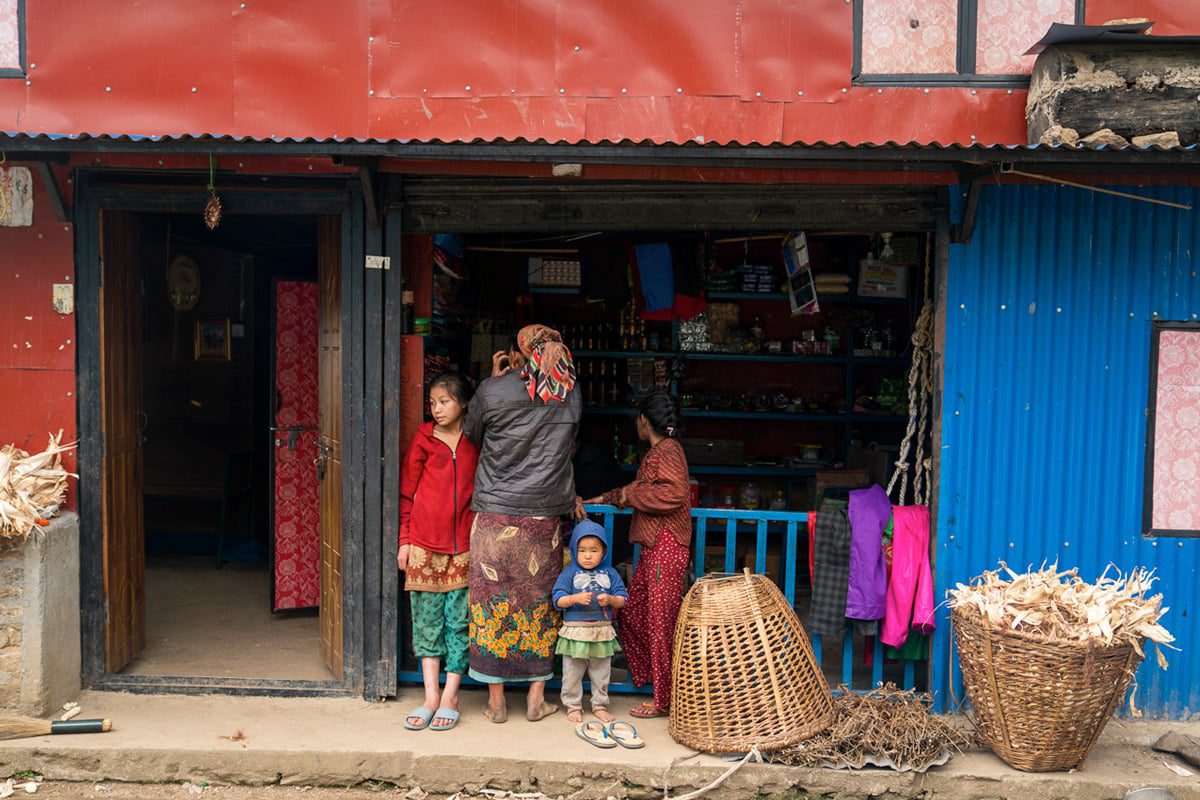
A shop in Ghyanfedi where a woman tries to buy grocery. Photo: Rajneesh Bhandari/ Journalists For Transparency
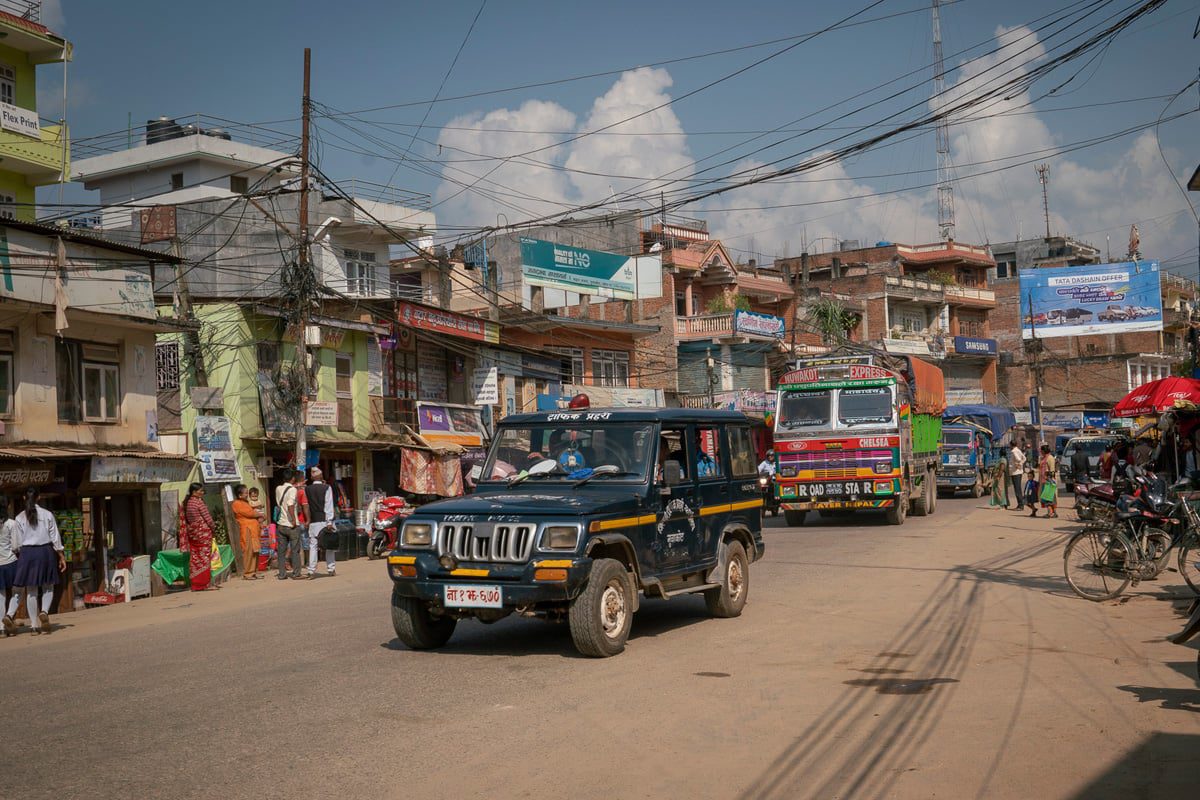
Bidur, the district headquarter where the police station and court are located is around 4 hours drive or a day long walk from Nirmala’s house in Ghyangfedi. Photo: Rajneesh Bhandari/ Journalists For Transparency
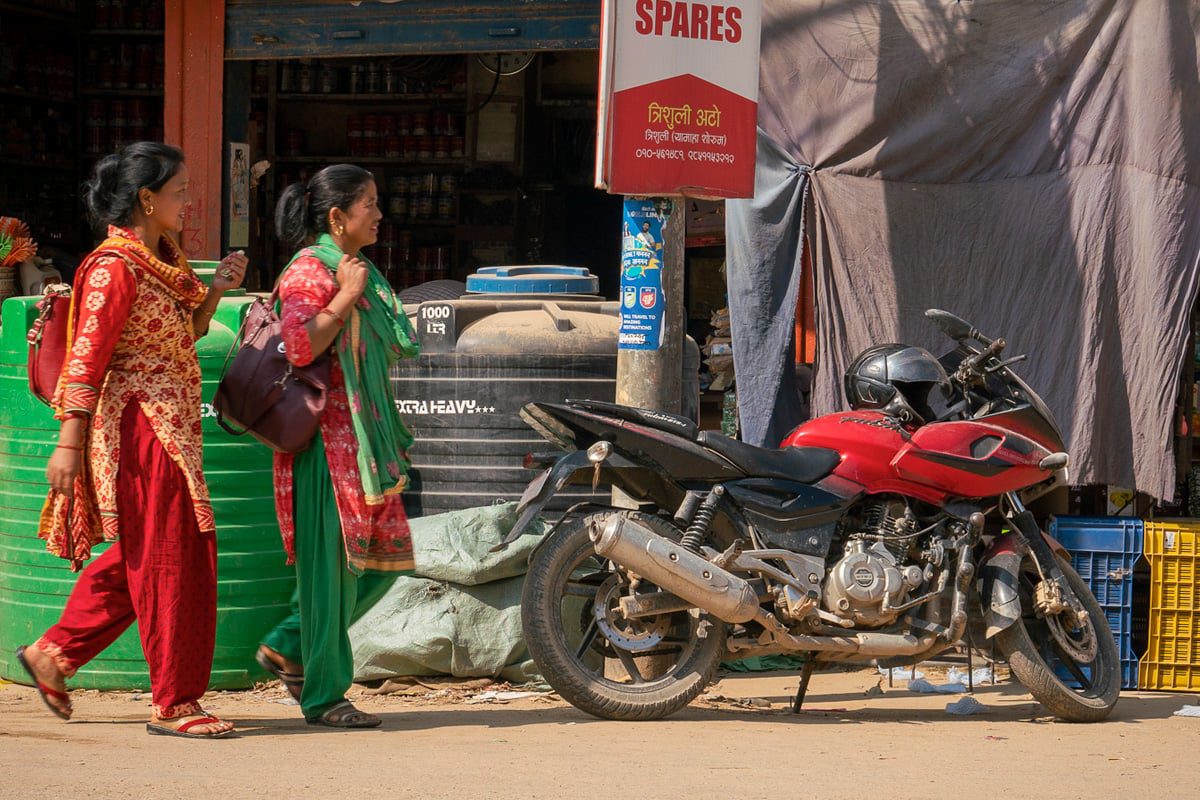
Some non-government organizations are active in Nuwakot to stop trafficking. Photo: Rajneesh Bhandari/ Journalists For Transparency
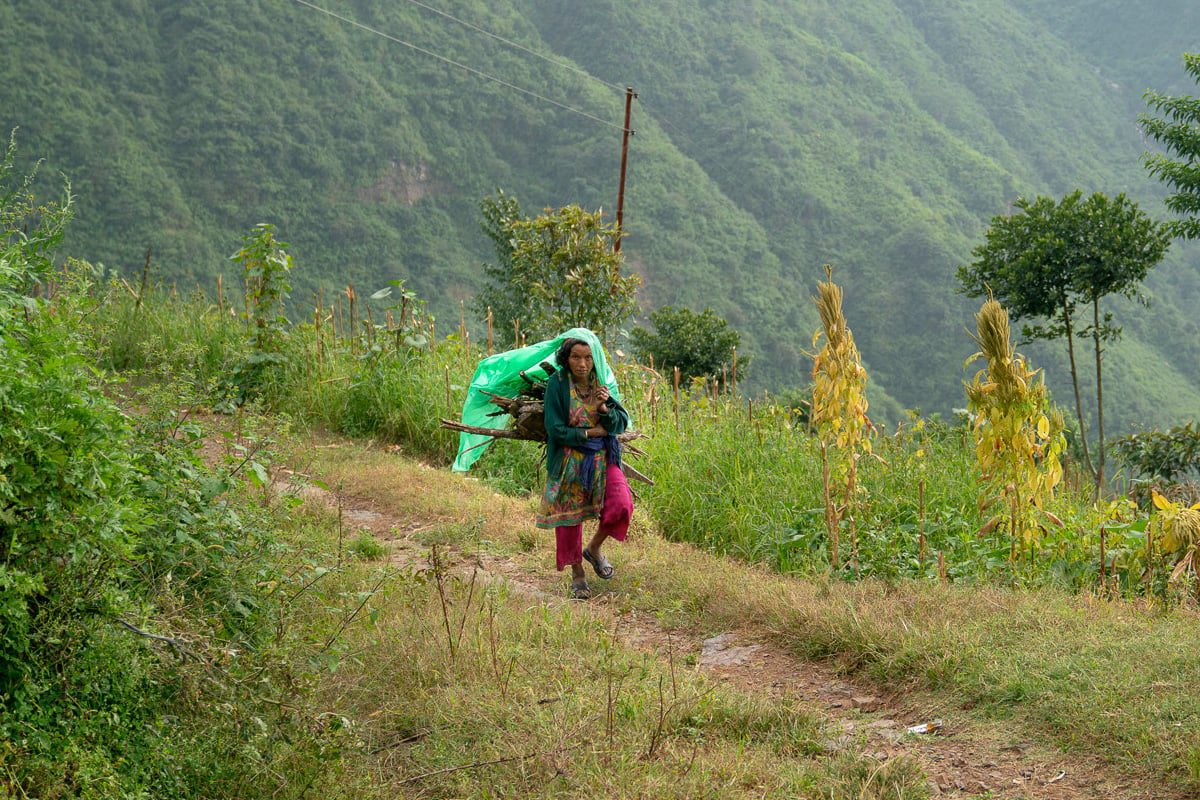
A woman wears a plastic to protect herself and the firewood from the rain. Many women in Ghyangfedi don’t want to speak about Sun Bahadur. Photo: Rajneesh Bhandari/ Journalists For Transparency
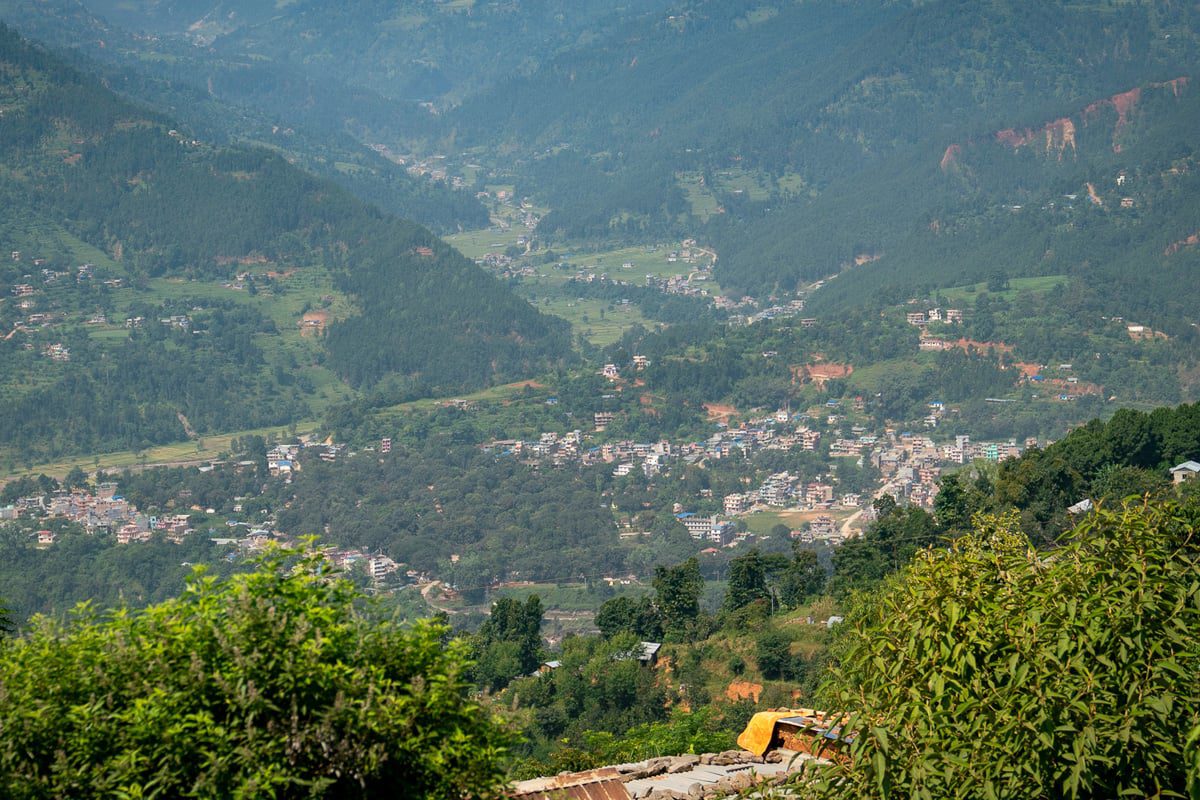
The trend of human trafficking has changed its form in migration and women trafficked to Gulf countries. Photo: Rajneesh Bhandari/ Journalists For Transparency
Though there is no exact date as to when human trafficking started in Nuwakot, activists say the rulers of the Ranas dynasty, which controlled Nepal from 1846 to 1951, used to visit the villages of Nuwakot to take girls back to Kathmandu, exploiting them for work and for the pleasure of the elites. Later, they took girls to India as well, said Thapa. Victims were forced to procure other girls and women to be trafficked.
Trafficking remains rampant in Nuwakot and in other districts outside Kathmandu, including Sindhupalchowk and Dhading. Official records show a high number of girls from Nuwakot being trafficked to brothels in various cities of India. Trafficking in Nuwakot’s villages is so intense that there is a dearth of women for marriage in the district. There are either only young girls or elderly women in the district.
According to a report published by the national Ministry of Women, Children and Senior Citizens, 678 human trafficking victims were rescued from 26 different countries in the year 2016-2017.
Official government figures bear no relation to the size of the problem in post-earthquake Nepal. They show 308 adult women and three adult men were trafficked between July 2016 and July 2017. Of these victims, 95 percent are female and three in four victims had no education at all. As alarming as these figures are, they represent only a small share of the trafficking problem, as most of the trade goes unreported to police. Activists say victims are too afraid of traffickers to speak up.
Another report by the National Human Rights Commission, an independent body established by Nepal’s Constitution, estimated that 23,200 people fell victim to traffickers between 2015 and 2016, out of which 6,100 were trafficked and 13,600 escaped attempts to traffic them. Nearly all of the victims, 98 percent, were women or young girls. Some 3,900 victims remained missing.
“We do have the law. But there have been challenges,” said Roshani Devi Karki, who monitors human trafficking at Ministry of Women, Children and Senior Citizens.
“We do have the law. But there have been challenges,” said Roshani Devi Karki, who monitors human trafficking at Ministry of Women, Children and Senior Citizens.
The principal challenge? “Effective implementation by the concerned authorities,” she said.
The trend of human trafficking is changing. Though it started with sexual trafficking, now it has grown to include laborers sent to Gulf countries. Children who were orphaned by the earthquake of 2015 have also become vulnerable to trafficking. The open border between Nepal and India has allowed traffickers to easily transport victims from Nepal to Indian cities. To fight all these, Nepal’s Police have created an office dedicated to human trafficking and transportation control bureau. But many are wary. Will the powerful and politically protected perpetrators will ever be brought to book?
Fear of the future

In February 2018, Shakti Samuha and other organizations wrote a joint letter to government agencies and commissions, alleging that Sun Bahadur was involved in trafficking for 20 years and that he has four brothels in India.
“Releasing a culprit who is involved in organized crime has increased challenges for victims’ security, protection and justice,” the letter reads. They also questioned Nepal’s Election Commission, asking, “How could a trafficker win election?”
Nepal’s Central Investigation Bureau also filed two other cases against him in the court.
Following the Supreme Court’s release of Sun Bahadur, police re-arrested him on a charge of human trafficking in another case in connection with Nirmala’s abduction. Sun Bahadur is appealing the arrest, claiming that he was freed in a different case by the Supreme Court. The hearing is ongoing at the High Court Patan.
If the politician is released again, Nirmala fears, he will come after her in her village.
“Some traffickers are released because of political power, some are freed on bail in serious cases of human trafficking,” Danuwar said. “When they are released their morale will be high. Victims will have difficulty keeping the hope for justice alive.”
Nirmala lives just an hour’s walk from Sun Bahadur’s home in Nuwakot. She avoids the road by his village, after, she said, she was attacked and held against her will for one day.
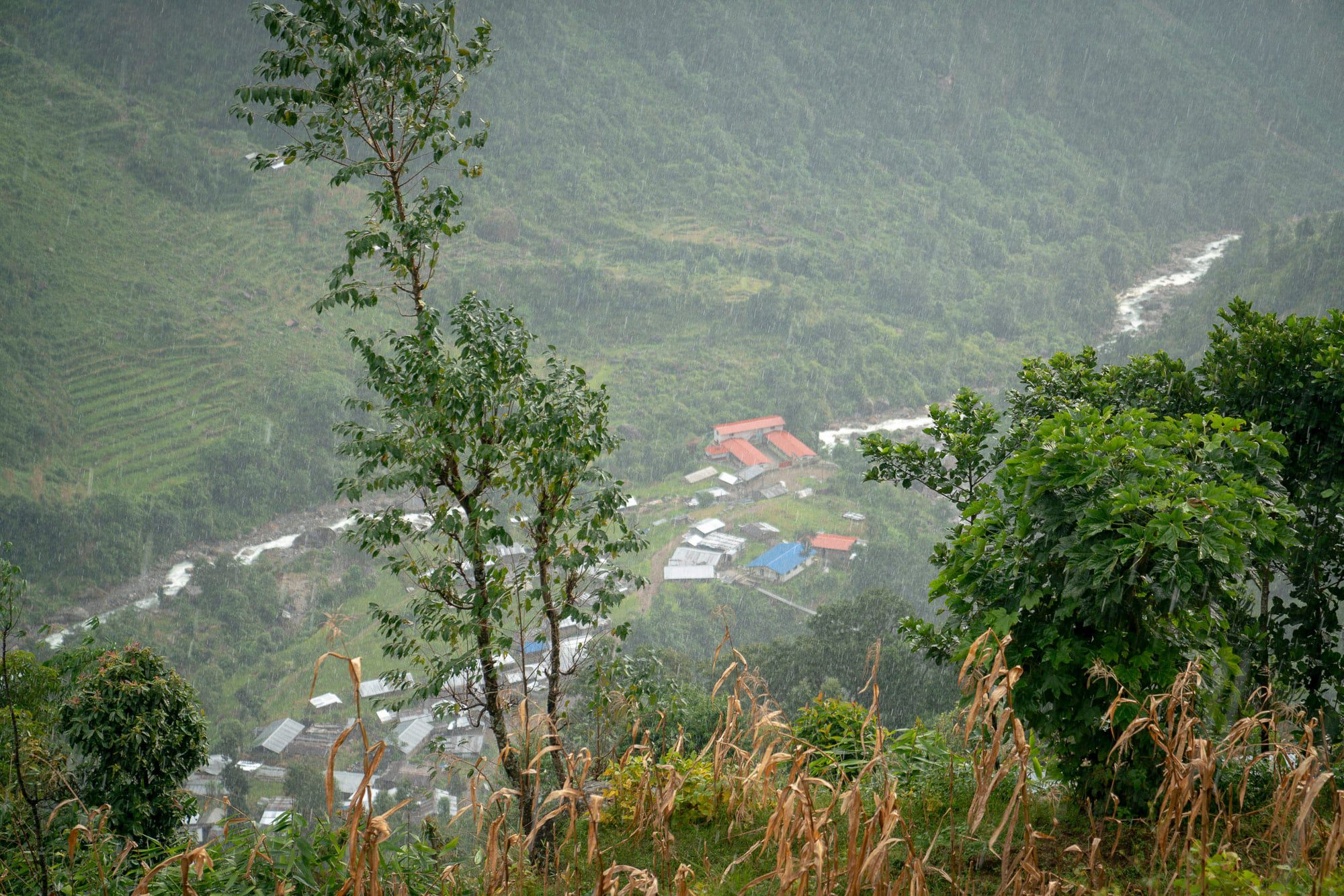
“I was on my way to collect relief supplies for my kids,” Nirmala said. “I was abducted and was asked various questions. They had attacked me for filing a complaint against Sun Bahadur.”
She also said she was forced to sign documents on that day. She does not know what the documents said, as she cannot read or write.
Narayan Prasad Pantee, of the Supreme Court, said that victims suffer from the lack of a formal policy or infrastructure to protect them. There is “no witness protection and resettlement policy of victims in Nepal .” That leaves many victims to be further victimized.
In October, Nirmala took her children for a walk through her village. Worried for her own safety, she spoke about their life ahead with concern. “I want them to study,” she said, “but I am not sure if I am able to give them a good future.”
“This story is a collaboration between Journalists for Transparency and 100Reporters, a nonprofit news organization.”







